Essential Hotel Staff Training Techniques for Success in 2025
Sep 11, 2025
 Mika Takahashi
Mika TakahashiPopular Categories
Hotel Technology & InnovationHotel Operations OptimizationDigital MarketingIndustry TrendsRevenue ManagementHospitality Industry
Popular Categories
Trending Post
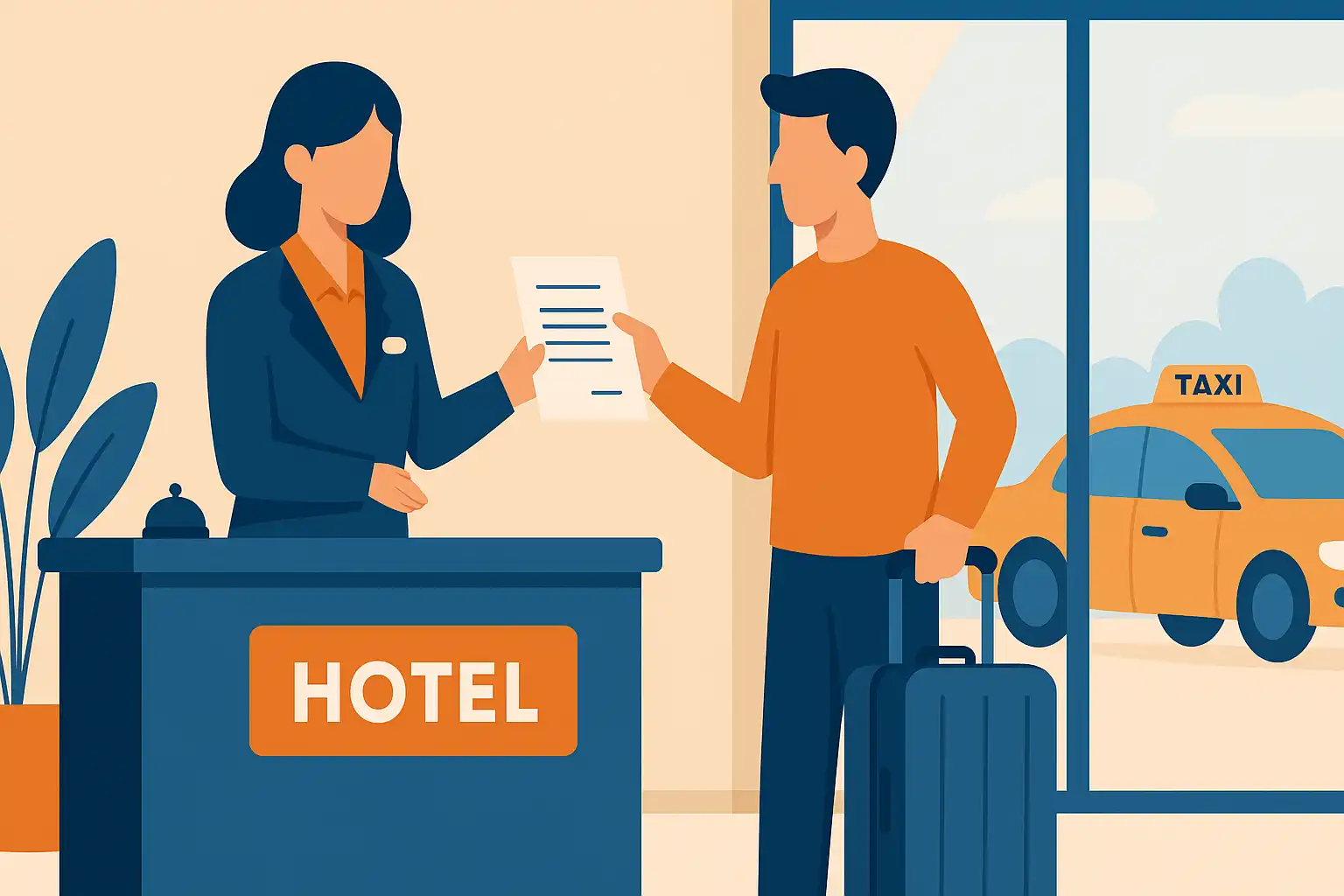
Hotel Walk Letter Template: Professional Guest Communication
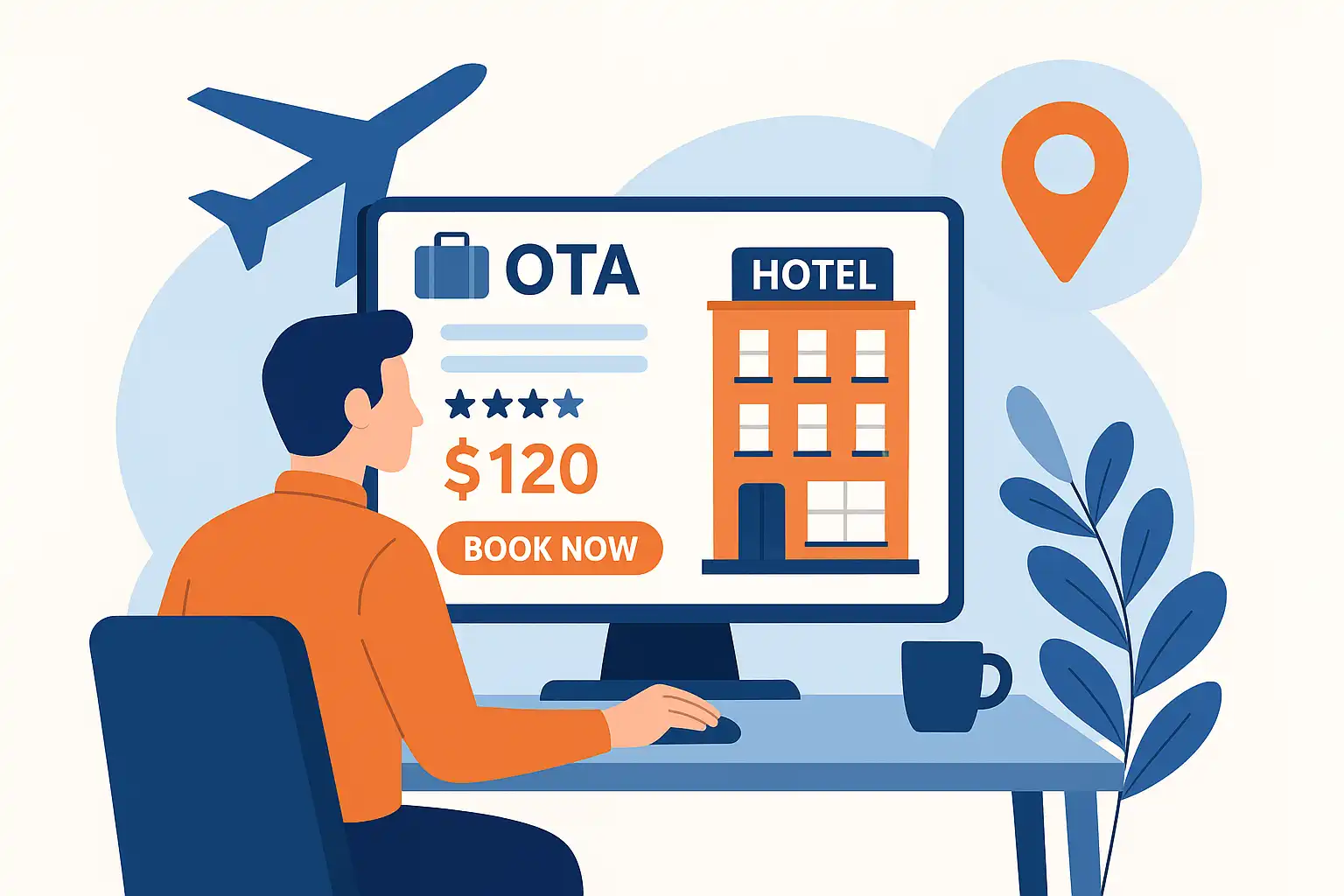
Online Travel Agents: What They Are and How They Work
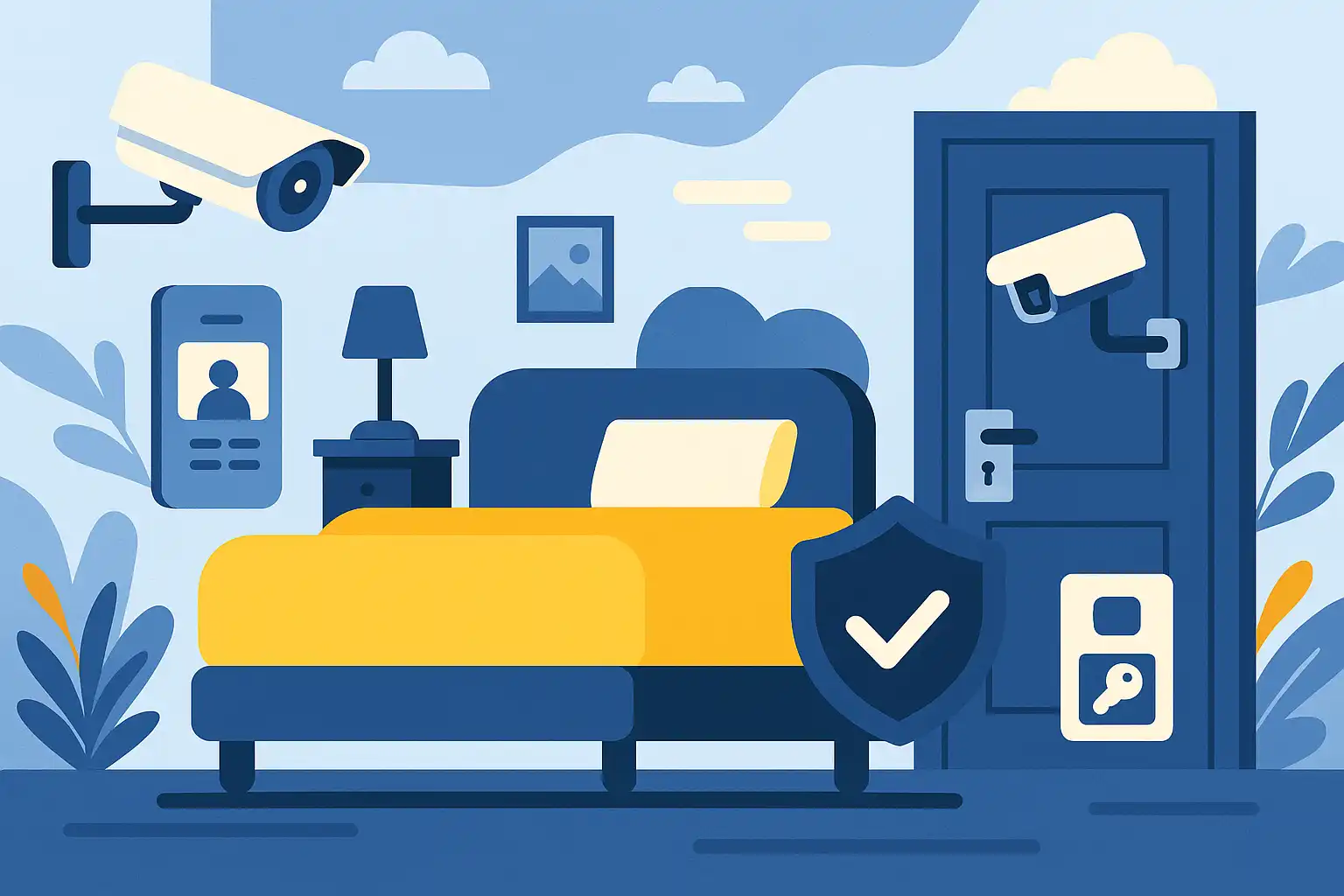
Hotel Security Systems: Modern Protection Solutions

Hotel Advertising: Complete Guide to Boost Bookings and Revenue
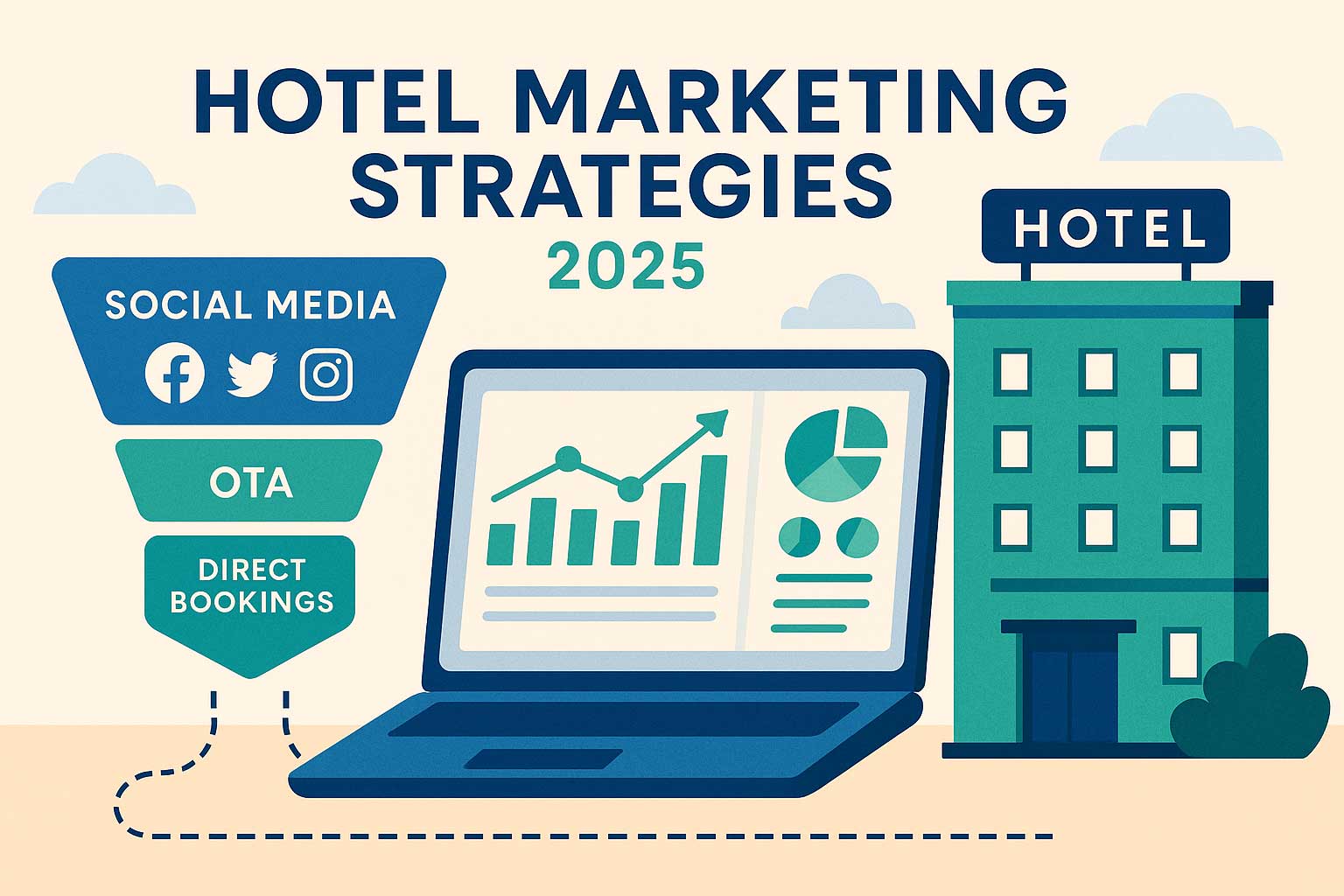
25 Hotel Marketing Strategy Ideas for 2025: Complete Guide

AI Reservation Agent: Revolutionizing Hotel Booking and Guest Experience

PMS Communication: Streamlining Property Management Through Effective Guest Messaging
Table of contents
Wondering how to implement hotel staff training that truly makes a difference? This article walks you through effective training techniques that not only boost service quality and staff efficiency but also create memorable guest experiences. From onboarding new hires to advanced training strategies, discover how to build a motivated and skilled hotel team ready for success.
Key Takeaways
- Develop comprehensive training strategies that improve service, retain valuable staff, and keep your hotel competitive.
- Use a variety of engaging training methods—like e-learning and virtual reality—to suit different learning styles and enhance employee performance.
- Cultivate a culture of continuous learning and professional growth to lift employee morale, reduce turnover, and elevate guest satisfaction.
Overview of Hotel Staff Training
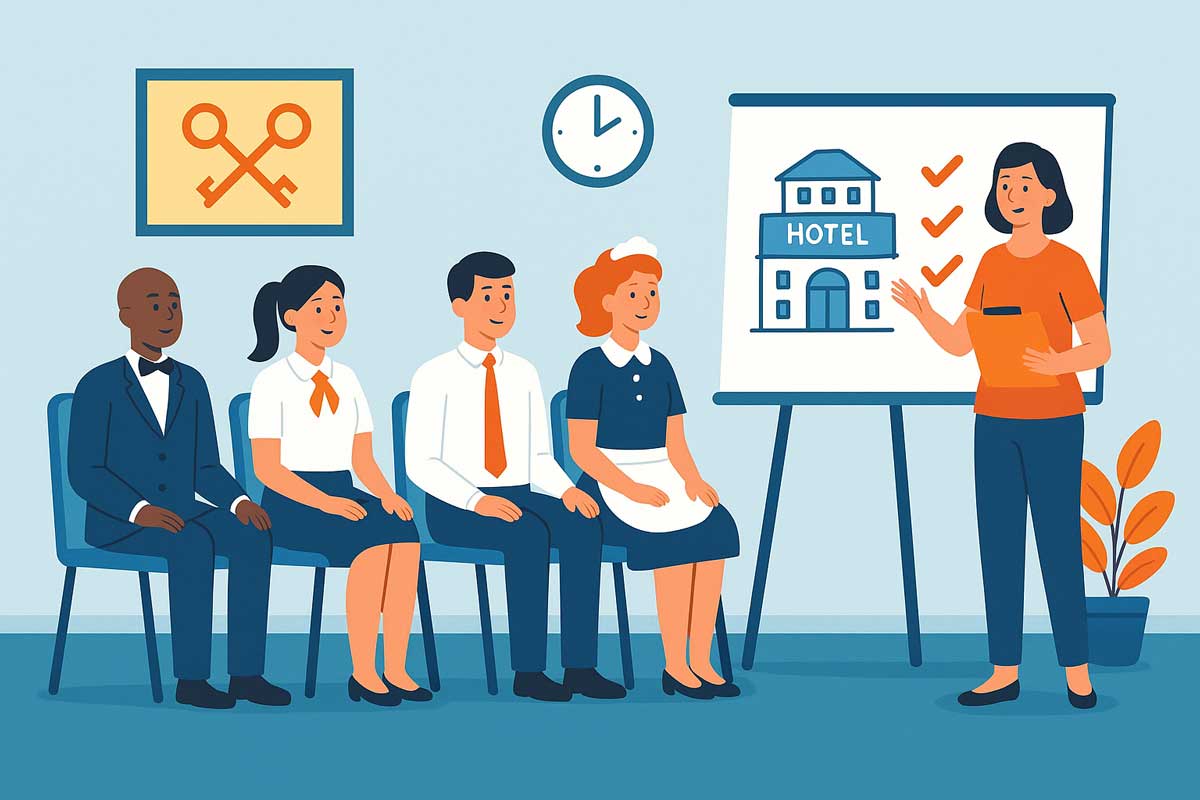
A well-planned training strategy is the backbone of excellent service, staff retention, and staying ahead in the hospitality industry. When hotel staff are properly trained, it directly impacts service quality, operational efficiency, and revenue growth. Empowered employees create those memorable guest experiences that keep visitors coming back.
Guests expect friendly, attentive, and efficient service throughout their stay. That’s why having well trained employees is so important. Good hotel staff training influences customer experience by improving communication and engagement. When guests are happy, staff satisfaction rises too, creating a positive cycle within hotel operations.
Continuous training is key to maintaining high standards and adapting to guests’ evolving expectations. Here’s why it matters:
- Proper training helps staff meet and exceed hospitality standards while adapting to changing guest needs.
- With 82% of hotels facing hotel labor shortages, effective training is more crucial than ever.
- Training supports smooth operations and keeps guests coming back.
Key Elements of Effective Hotel Staff Training Programs
The best training programs:
- Actively engage employees with hands-on and interactive activities.
- Include enjoyable sessions that make learning memorable and effective.
- Set clear goals to align training with hotel standards and guest expectations.
Identifying existing skills and knowledge gaps allows you to tailor training for maximum impact. Ongoing training builds staff confidence and productivity, ensuring everyone performs at their best.
Setting Clear Objectives
Clear training objectives help hotel staff understand what’s expected. Using the SMART framework—Specific, Measurable, Achievable, Relevant, and Time-bound—ensures your goals are focused and effective. Role-specific training equips staff with the necessary knowledge and essential skills for their hotel job positions.
Communicating these goals clearly keeps everyone on the same page, which is vital for maintaining service quality and meeting guests’ expectations through clear and effective communication.
Utilizing Diverse Training Methods
People learn in different ways, so mixing training methods helps reach everyone. Role-playing exercises, on-the-job training, and interactive e-learning provide practical, hands-on experience that sticks.
Offering a variety of activities caters to different learning styles and greatly improves training effectiveness. This way, all staff members receive the proper training they need to excel.
Regular Updates and Revisions
Training isn’t a one-and-done deal. Regularly updating training materials keeps them fresh and relevant, especially with new hires, seasonal shifts, and policy changes. Compliance training must reflect the latest industry standards and guest expectations.
Consider partnering with AI-driven platforms specializing in hospitality to create customized courses that stay up to date.
Comprehensive Onboarding for New Employees
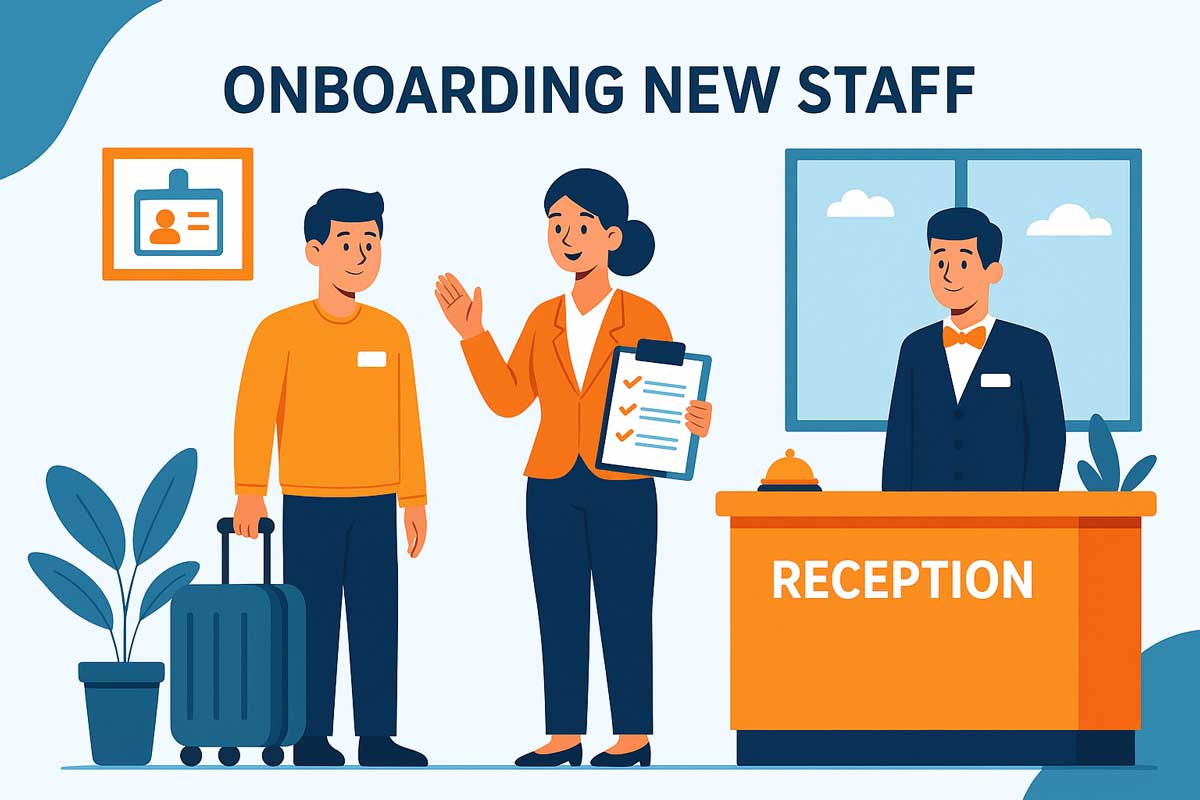
Onboarding sets the tone for new hires, especially since many start in customer-facing roles right away. Aligning onboarding with your hotel’s goals ensures new employees get the training they need from day one.
New employee training should cover technical skills, soft skills, customer service, and cultural sensitivity to prepare staff for success.
Orientation Sessions
Orientation introduces new hires to your hotel’s culture, history, and policies. It also helps them understand their roles and meet the team. Sharing this information early builds a sense of belonging and a solid internal network.
Mentorship Programs
Pairing new employees with experienced mentors provides guidance and support, boosting confidence and helping them settle in quickly. Mentorship accelerates learning and makes new hires feel part of the team.
Specialized Training Areas
Technology plays a big role in enhancing guest satisfaction by making experiences smoother and more personalized. Training on new tech improves operational efficiency by automating tasks and managing data better. Scenario-based training sharpens staff’s ability to anticipate guest needs and respond proactively.
Key training programs include:
- Front desk training to develop essential skills and ensure consistent guest experiences.
- Housekeeping excellence training focused on cleanliness and room readiness.
- Sales and marketing training aimed at boosting bookings and revenue.
Tailoring technical skills training to each role ensures staff are equipped to handle their specific responsibilities effectively.
Customer Service Excellence
Customer service training focuses on clear communication, empathy, and problem-solving. Teaching empathy helps staff create welcoming environments that meet guests’ unique needs. Attentive, personalized service leads to memorable experiences and higher guest satisfaction.
Exceptional customer service builds guest loyalty and enhances your hotel’s reputation. Training equips staff to make great first impressions and handle complaints gracefully, delivering the exceptional service guests expect.
Health and Safety Regulations
Health and safety training is vital for protecting guests and employees. Covering topics like safe food handling, fire safety, first aid, and evacuation protocols ensures everyone’s safety.
Emergency preparedness training helps staff respond effectively when it matters most, reinforcing safety protocols and security measures.
Cultural Sensitivity and Diversity
Diversity training fosters respect and understanding for guests and colleagues from all backgrounds. It creates an inclusive environment by teaching customs, traditions, and etiquette.
Offering training in multiple languages improves comprehension and retention among staff. The rise in DE&I programs shows the hospitality industry’s commitment to creating welcoming spaces where everyone feels valued.
Leveraging Technology in Hotel Staff Training
Incorporating technology into training makes learning more engaging and accessible. Digital learning platforms like Lingio provide innovative, hospitality-focused solutions that greatly enhance training effectiveness.
A hybrid approach combines digital and hands-on training, offering flexibility and scalability. Training on AI messaging and other new tech tools ensures staff can use these systems to improve hotel operations and guest communication.
E-Learning Platforms
Digital courses cover everything from customer service to revenue management. Partnering with AI-driven course creators specializing in hospitality lets you customize training to your hotel’s needs.
Interactive e-learning keeps staff engaged with quizzes and practical exercises, helping them absorb and apply new knowledge.
Virtual Reality Simulations
Virtual reality immerses staff in realistic scenarios, boosting their confidence and decision-making skills. VR is especially useful for training in emergency response and other complex situations, allowing safe practice without real-world risk.
Measuring Training Effectiveness
Measuring how well training works helps you understand its impact on staff performance and guest satisfaction. Tracking key performance indicators (KPIs) like employee retention and guest experience scores provides valuable insights.
Regular assessments before and after training ensure your programs meet their goals. Feedback from both guests and employees helps refine training materials and methods continuously.
Key Performance Indicators (KPIs)
Hotel KPIs such as customer feedback, staff turnover rates, and sales figures help gauge training success. Monitoring these metrics allows you to adjust your training strategy for maximum impact.
Feedback Mechanisms
Ongoing feedback keeps training relevant and effective. Constructive conversations highlight strengths and areas for improvement, fostering continuous learning and excellence.
Continuous Learning and Development
A culture of continuous learning keeps staff skills sharp and knowledge current. Engaged employees look forward to training and adapt more easily to change.
Investing in employee development reduces turnover and hiring costs while boosting job satisfaction. Well-structured onboarding and ongoing training programs play a big role in retaining talented staff.
Professional Growth Opportunities
Offering workshops, seminars, and conferences helps staff stay ahead of industry trends. Sponsorships for external courses and in-house training programs support career growth.
Mentorship programs benefit both new hires and employees aiming for advancement. Encouraging professional growth keeps your team motivated and loyal.
Recognition and Rewards
Recognizing teamwork, collaboration, and achievements creates a positive work environment. Rewards motivate staff to perform at their best and foster a culture of support.
Regular recognition boosts job satisfaction, which translates into better guest experiences and higher customer satisfaction.
Summary
In 2025, the success of your hotel depends heavily on how well you train your staff. By setting clear objectives, using diverse training methods, embracing technology, and promoting continuous learning, you prepare your team to deliver outstanding service. Comprehensive onboarding, specialized training, and professional growth opportunities ensure your staff have the necessary knowledge and essential skills to meet guest expectations.
Fostering a culture of development and recognizing employee efforts not only improves service quality but also enhances staff morale and retention. These training techniques will help your hotel remain competitive and provide exceptional guest experiences that keep visitors coming back.
